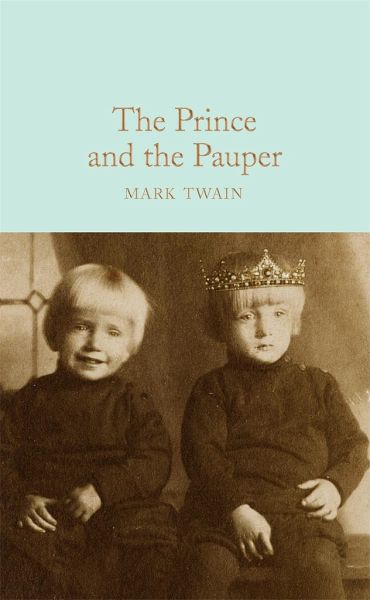
The Prince and the Pauper
Versandkostenfrei!
Sofort lieferbar
8,99 €
inkl. MwSt.

PAYBACK Punkte
4 °P sammeln!
The Prince and the Pauper is a classic adventure of mistaken identity set in Tudor London and told with Mark Twain's trademark humour and concern for social justice.§§Part of the Macmillan Collector's Library; a series of stunning, clothbound, pocket sized classics with gold foiled edges and ribbon markers. These beautiful books make perfect gifts or a treat for any book lover. This edition has an afterword by author and journalist Nicolette Jones.§§Penniless Tom Canty wonders what it would be like to be a prince. Heir to the throne Edward Tudor dreams of a life outside the royal palace wa...
The Prince and the Pauper is a classic adventure of mistaken identity set in Tudor London and told with Mark Twain's trademark humour and concern for social justice.§§Part of the Macmillan Collector's Library; a series of stunning, clothbound, pocket sized classics with gold foiled edges and ribbon markers. These beautiful books make perfect gifts or a treat for any book lover. This edition has an afterword by author and journalist Nicolette Jones.§§Penniless Tom Canty wonders what it would be like to be a prince. Heir to the throne Edward Tudor dreams of a life outside the royal palace walls. When the two boys meet by chance they're amazed by how similar they look and agree to swap clothes. Dressed in rags, Edward is thrown out onto the streets whilst courtiers have no idea that their prince is a pauper. Will each boy be able to find his way home?













